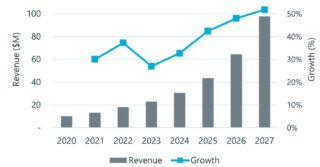Ultra-compact Selective Catalytic Reduction along with TCA 66 turbochargers help vessel meet exacting Norwegian emission standards
MAN Energy Solutions’ after-sales division, MAN PrimeServ, has completed a retrofit aboard the ‘Ambience’, a vessel belonging to Ambassador Cruise lines, managed by Bernhard Schulte Cruise Services. The scope of the project covered the installation of SCR (Selective Catalytic Reduction) systems, while two of the ship’s four MAN 8L58/64 engines replaced their NA57/T turbochargers with modern MAN TCA 66 units.
The order came about when Ambassador overtook the Ambience with the intention of offering cruises in the key Norwegian Heritage Fjord market with its exacting Tier III emission standards.
Olaf Gunia, Head of PrimeServ Hamburg, said: “This retrofit really establishes Ambassador’s green credentials within the cruise segment and the SCR solution is performing well with a NOx removal rate of 93%. Increasingly, we are receiving similar requests from cruise and ferry operations that wish to become sustainable without the need for mandated industry legislation.”
Bernd Siebert, Head of Retrofits & Upgrades, MAN PrimeServ, said: “This entire project proved challenging owing to – among other factors – the long cold lay-up of the ship due to the covid-19 pandemic, and the tight timeframe for completion. Happily, our work on the Ambience has optimised the interaction between the newly installed SCR system, turbochargers and engines and the vessel is now Tier III-compatible and fit for service in one of the globe’s most pristine, natural environments.”
MAN’s SCR system is the greenest solution available on the market with the highest operational readiness and safety. The SCR will be available from just 15% engine load, enabling clean operation, also during slow-sailing in the fjords as well as close to port and populated areas.
The fully modular SCR solution has also been fully integrated into the Ambience’s engine-control set-up. With its closed-loop system and a weather station that uses environmental data, the NOx-reduction rate is maximised and ammonia-slip minimised to just 10 ppm, comparable to that of a car. Low ammonia slip is not just good because ammonia is a greenhouse gas and affects the climate, but also because it reduces urea consumption enabling the urea-tank size to be minimised.


![Forecasts, Opportunities, and Challenges for the Polish Industry in 2024 [ANALYSIS] Forecasts, Opportunities, and Challenges for the Polish Industry in 2024 [ANALYSIS]](https://industryinsider.eu/wp-content/uploads/xIndustry-40-320x167.jpg.pagespeed.ic.o8zijDQlIJ.jpg)
![The importance of artificial intelligence in transport and automotive industry is growing [REPORT] The importance of artificial intelligence in transport and automotive industry is growing [REPORT]](https://industryinsider.eu/wp-content/uploads/xcity-320x167.jpeg.pagespeed.ic.xFkQdk7qXO.jpg)
![By 2030, the market size of metal processing tools is expected to reach $120.44 billion [REPORT] By 2030, the market size of metal processing tools is expected to reach $120.44 billion [REPORT]](https://industryinsider.eu/wp-content/uploads/xcutting-tools-320x167.jpg.pagespeed.ic.SgnEk-RWA-.jpg)
![Methane emissions remains elusive challenge for oil and gas industry [REPORT] Methane emissions remains elusive challenge for oil and gas industry [REPORT]](https://industryinsider.eu/wp-content/uploads/xMethane-emissions-by-source-320x167.jpg.pagespeed.ic.q-7jG2luXb.jpg)

![Will digital twin revolutionize the aerospace and defense sector? [REPORT] Will digital twin revolutionize the aerospace and defense sector? [REPORT]](https://industryinsider.eu/wp-content/uploads/xdigital-twin-in-aerospace-320x167.jpg.pagespeed.ic.K-YNPhggcS.jpg)